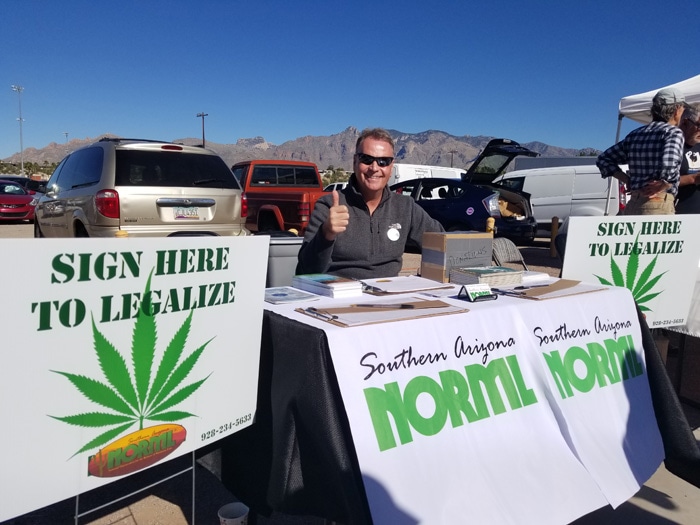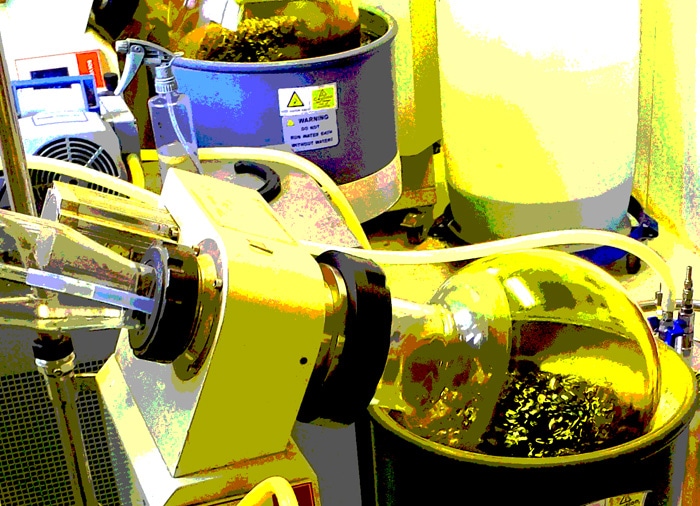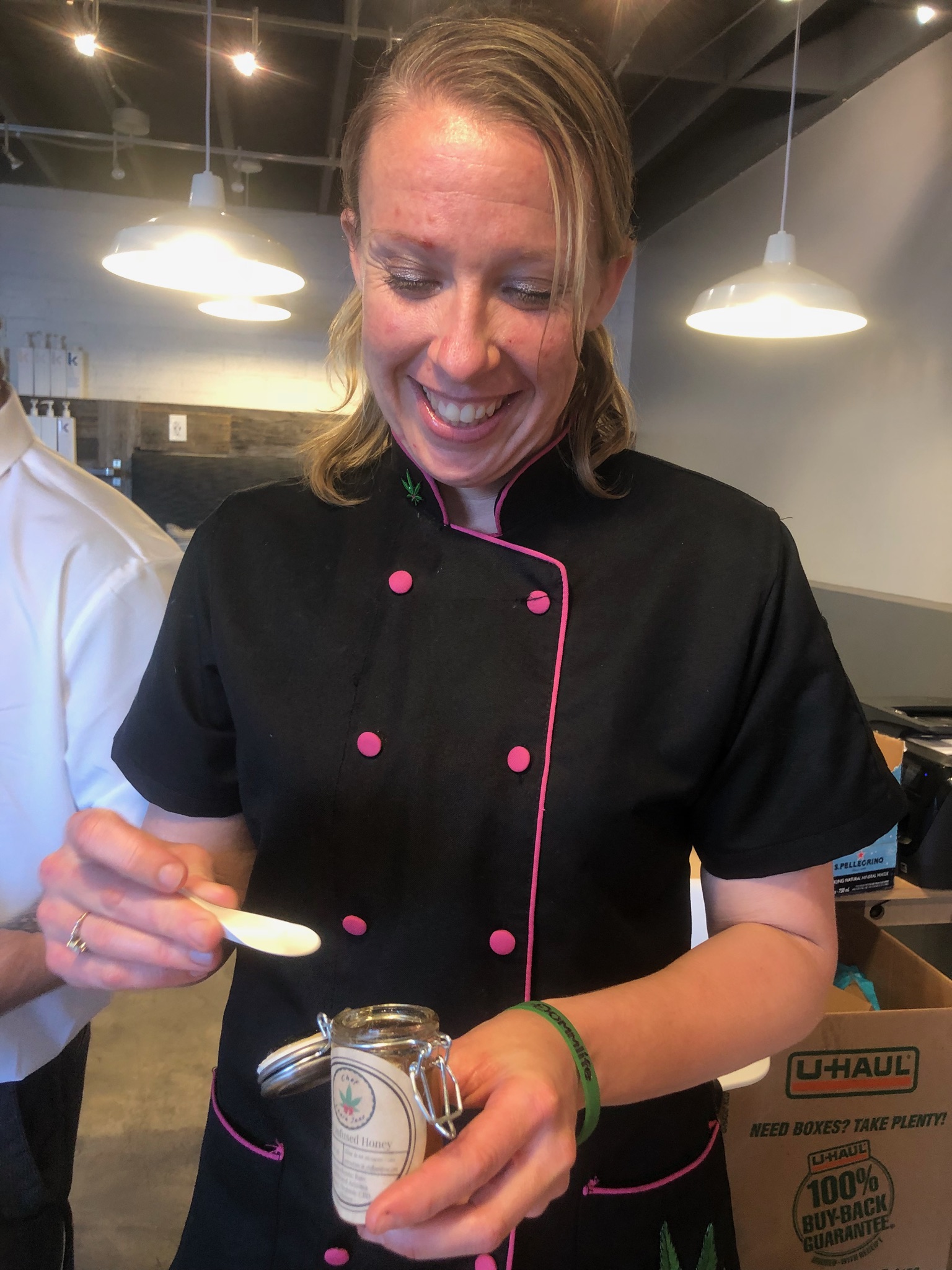By Jack Wilborn, LEAP
I have been somewhat involved with the political machinery for over a decade now, though not necessarily all of that time was spent in the cannabis policy. I do have some views on how the public fits in with not only the legislative angle but the initiative angle.
Most of us wanted testing of the cannabis products we purchase, which was left out of the AMMA initiative, unfortunately. We had to spend time at the Capitol working to obtain the three quarters vote required to modify the AMMA for the good of the patients.
And … we finally got it. It wasn’t easy, quick or perfect. So there’s a lot we can learn from the experience.
I’d like to point out is that when legislation and/or initiatives come into play, negotiations are necessary between the parties involved. When it becomes law, it may still have flaws. After an idea becomes law there are always opportunities to work on aspects that were not in the original package (similar to what we did with the testing as a modification of AMMA). These types of changes to existing initiatives take a ¾ vote to make these negotiated changes.
A simple analogy is that what we want is a ‘loaf of bread.’ This loaf represents all of the things we want. However, this loaf is not acceptable to all and will result in failure. If we accept the bread a slice at a time, we will get the loaf, not today, but eventually we can get the whole loaf. If we keep pushing for the whole loaf and nothing less, we usually end up with nothing. No forward movement, no advancing, as there is nothing to advance.
The initiative process in Arizona is interesting from the viewpoint (as told to me by a former state legislator, now a Congressperson) that, originally, Arizona citizens felt there was no need for legislators, because all laws would be done by the initiative process.
No ‘volunteer only’ (not backed by commercial enterprise) initiatives has made it to the ballot in Arizona. That’s not saying it can’t be done, but the chance of this type of initiative succeeding is unlikely. And, every session the legislature tries to make it even harder for volunteers to succeed.
All initiatives that made the ballot were supported by a commercial enterprise of some kind. It’s an investment which can be adapted over time to meet changing expectations and needs. Prop 205’s is an example of what can happen when people expects to get everything at once and refuses to understand you need to begin somewhere, and, adapt as time goes on.
Given these facts, the way to move forward (adding slices to the loaf) is to work with legislators to add ‘slices to the loaf’ and that means modifying the AMMA. For example, some of those ‘slices’ would be relief from incarceration and/or allowing convicted drug users to be employed in the industry. With all of its faults, since the AMMA is law, we can work with it. It will take time and we need to accept that we will have to add our ‘slices’ overtime, but at least we will be moving forward in a positive way.
When you vote, you should know what you’re wanting on and why you vote the way you do and accept the results as ‘your vote.’ To vote well takes a lot of work. AZ-NORML helps tremendously but cannot cover what is not cannabis related that might influence your vote. This vote is a doubled edged sword in many cases, and you have to pick what is important to you.
I’ve been voting for decades and have yet to vote for any initiative that I was 100% in agreement w every single provision in the legislation. I personally have found that any drug arrest causes a lifelong persecution and associates you with drug abuse, forever. I would take a monopoly in order to keep people out of the criminal justice system (including metabolite DUI’s) along with many of the other inconveniences which were present in Prop 205.
I have to admit when I hear someone speak about how they voted against Prop 205 and are proud of it, then in the same breath exclaim about how terrible it is that people are still being arrested and prosecuted, I think of a few thing I can’t dismiss or justify.
They got what they voted for. They should not be complaining about what they supported.
A NO vote on Prop 205 meant you stood with Polk, Montgomery and LaWall and other cannabis prohibitionists and promoted their values of arrest, prosecution and a lifelong persecution of cannabis users, along with a DUI for metabolites. They even used the NO vote communitiy’s position to validate to their prohibitionist community how bad of an initiative it was when ‘even the dopers don’t want it’ (paraphrased.)
The NO Vote community gave prohibitionists support for the ‘status quo,’ complete with continued harassment and arrests for cannabis users. In the end that position firmly stood with the Polk, Montgomery and their anti-cannabis groups. This particular NO Vote also made it “no chance” to get people out of jail, which was what we could have been working on for the last three sessions, along with very few arrests if Prop 205 would have passed. It would have been a first slice of the loaf along with 30,000 of your fellow cannabis users who would not have been introduced to the criminal justice system via arrests for adult use cannabis or class 4 felony narcotic (vape pen or concentrates.)
What was so bad in Prop 205 that some chose arrest, prosecution and sometimes imprisonment of their ‘friends’, fellow cannabis users, and possibly even yourself over some part of that ballot measure?
Their justification escapes me.
I hope they get a chance to explain to some of those 30,000 arrested cannabis users that they voted for other people’s incarceration and got what they voted for. You bet that vote is important. I am asking you, this time, to support whatever the 2020 initiative has to offer and give groups like LEAP and AZ-NORML the ability to get us the whole loaf by following up with the legislative process. We’ve put about 10,000 people a year into the criminal justice system since the failure of Prop 205. That’s what a NO Vote does and did.
Ending up here, I’d like to say that I’ve been to the Capitol a number of times these past few sessions and AZ-NORML is always there, getting beat up for the cannabis community, but making headway. Meanwhile I have seen few of you at the capitol, especially of those whining and complaining.
Even if Mikel works for one of the entities creating the 2020 initiative, you can bet that Mikel will do all he can for what’s right for the cannabis users that’s within his power. He also knows he has to give at some point, but we can fix many of these issues when it becomes law.









Leave A Comment
You must be logged in to post a comment.